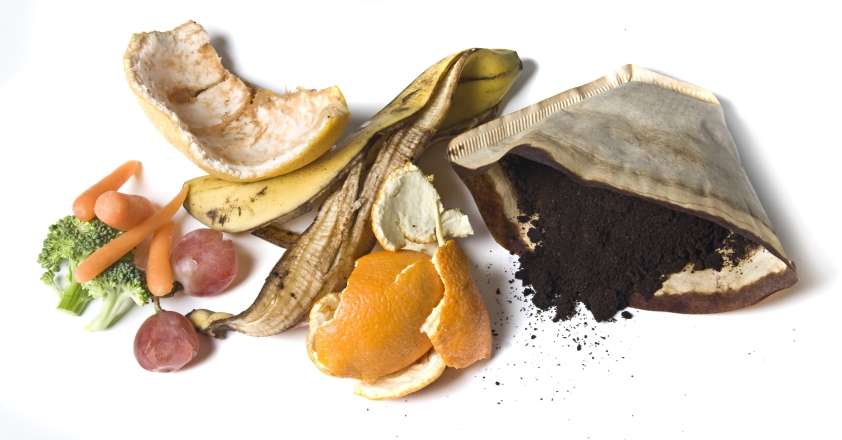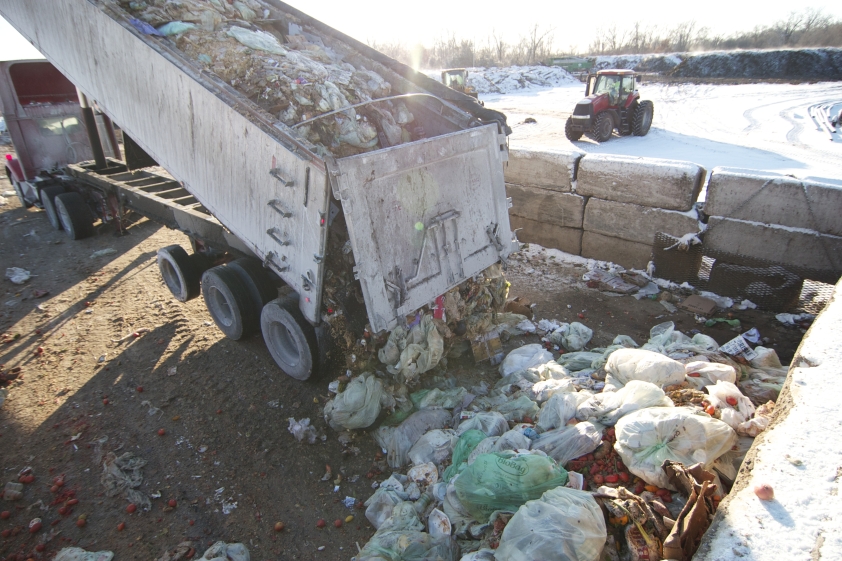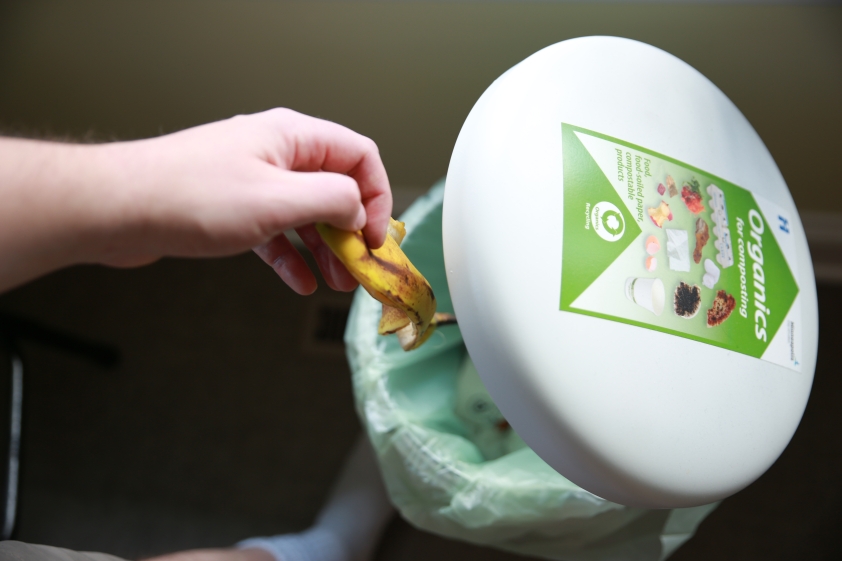
Why should I take advantage of organics recycling in my community?
Organics make up a lot of our trash. Studies show that organic materials, including food and compostable packaging, make up about 25 percent of the trash stream. Diverting organics from our trash to composting facilities will slow down the rate at which our landfills are growing and will avoid the long-term costs and environmental consequences to burying them or burning them.
Recycling organics reduces greenhouse gas emissions. Organic materials decomposing in landfills generate methane, a potent (and stinky!) greenhouse gas. When diverted to composting facilities, those organics produce far less methane and fewer odors.
Composted organics improve soil and protect water. Compost added to soil reduces the need for fertilizers and increases water retention. That increased retention not only helps to conserve water, it also reduces runoff and erosion that can pollute our water.
Backyard composting can't handle all organics. Some organic waste, including meat, bones, fats, and dairy products require higher temperatures to decompose than what a backyard compost pile can produce. Curbside organics recycling services, however, can take those items.
Composting supports local economies. Minnesota’s composting industry supports about 700 jobs and produces $148 million in gross economic activity per year. The composting industry supports four to eight times more jobs on a per ton basis than landfilling operations.

Curbside service just launched in my community. Why is everyone being asked to pay for the service?
Everyone benefits when more people participate. It’s not just the households that opt to place their organics in the recycling cart that benefit from organics recycling. We all gain from reduced greenhouse gas emissions, improved soil and water quality, a strong economy, and reduced reliance on landfills.
Sharing the cost reduces barriers to participating. Charging only the households that participate creates a disincentive to join organics recycling programs and raises the cost for those that do participate. Communities that charge every household the same have dramatically higher participation rates and collect more recyclables and organics than communities that charge only subscribers.
It’s consistent with state law. Minnesota has become a national leader when it comes to recycling in part thanks to a provision adopted into the Waste Management Act in 1991 that prevents households that recycle from being charged more than those that do not (Minn. Stat. § 115A.93, subd. 3c). The law has been applied to bottles, cans, cardboard, and other recyclables for more than 30 years. The charges you’re seeing for organics may be new if your county, city, or waste hauler has not previously offered organics recycling.

How can I participate in curbside organics recycling?
Each community is different. Many parts of the state do not yet have access to curbside organics recycling. Check with your county, city, or residential waste hauler to see if curbside service or drop-site service is available in your area.
What items can I place in my organics? Organic recycling programs typically collect:
- all food including meat, dairy, bones, bread, nuts, and shells
- food-soiled paper like pizza boxes, napkins, paper towels, and paper egg cartons
- certified compostable products including paper plates, cups, bowls, containers, and utensils that have the BPI logo showing they are certified as compostable
- other compostable items including coffee grounds and filters; hair and nail clippings; cotton balls and swabs with paper stems; household plants and flowers; and wooden items like chopsticks, popsicle sticks and toothpicks
How do I sign up for curbside service? If the service is available in your area, contact your city or your waste hauler to sign up.